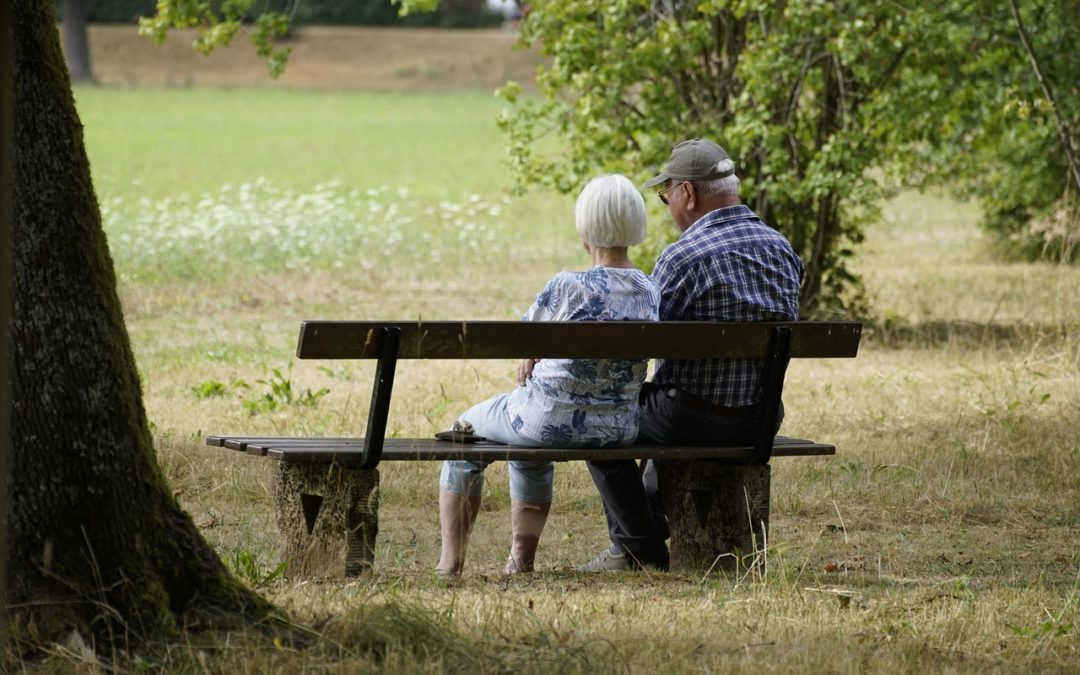Generalised Anxiety Disorder (GAD) is a common mental health issue that can affect individuals of all ages. It is prevalent and can often be overlooked for the elderly. While it’s normal for seniors to experience occasional worry or stress, persistent and overwhelming anxiety can significantly impact their overall well-being and quality of life. Recognising the symptoms of anxiety in yourself or in an elderly loved one is crucial for intervention and obtaining effective support.
At Little Croft Care Home, we understand and have seen how anxiety disorder can affect the elderly. We believe it is important to spread information and awareness of the often-overlooked mental illness.
What Causes Anxiety?
It is key to understand the cause of anxiety disorder to be able to understand how you can help yourself, or an elderly loved one. Generalised Anxiety Disorder is not just feeling a bit scared sometimes; it is ongoing, and will often fluctuate.
Neurological Reasoning Behind Anxiety Disorder
It was previously thought that anxiety disorder is caused completely by the amygdala, a single part of the brain operating like a centre for fear and anxiety. However, recent research breakthroughs have shown that anxiety actually comes from multiple areas of the brain, and how they interact with each other. The amygdala, as a highly emotional part of the brain still plays a part, but it is the other areas of what is called the limbic system (the hippocampus, amygdala, hypothalamus and thalamus) that also contribute. Scientists have found that those suffering with anxiety disorder will have higher activity in their limbic system which can lead to the more rational and logical areas of the brain being overridden and then an increase of impulses within the brain that trigger the “fight or flight” response that comes with anxiety.
Who is More Predisposed to Suffer From Generalised Anxiety Disorder?
Anyone can suffer with anxiety at any time in their life; however, there are a multitude of different factors that can change how likely it is.
A few factors linked to being elderly are feelings of grief, possibly from the loss of a loved one, as well as illnesses that are more likely to the elderly such as Parkinson’s or heart and thyroid diseases. There are also certain medications that older people may find themselves having to take more often such as steroids and stimulants. Social isolation is also a huge issue for many elderly people, which can also make suffering with anxiety disorder more likely.
Other more general causes of anxiety are:
- Childhood trauma
- Stress
- Other physical or mental health problems
- Sex (women are nearly twice as likely to suffer from anxiety)
- Genes
- Historic drug and alcohol misuse
What Are the Symptoms of Anxiety in the Elderly?
Irrational Worry
One of the main symptoms of anxiety in the elderly is irrational worry or fear. It will seem irrational from an outsider’s perspective, and often for the person suffering with anxiety in retrospect. There can also be worries about rational things such as finances, family and health but disproportionately to their actual circumstance. This constant worry can lead to other mental and physical symptoms. It is worth seeking help if you find that your own, or an elderly loved one’s worries are eating into their own time, leading to sleepless nights or prevent following up on plans.
Physical Symptoms
There are numerous physical symptoms of anxiety; some will just be in the moment, and some can be caused by years of worry and fear. For the elderly, the physical symptoms tend to be more pronounced than in younger people, however they are often overlooked as just “getting old” or other illnesses. Here are some examples of what to look out for in order to pick up on anxiety:
- Increased heart rate which can lead to high blood pressure
- Shortness of breath
- Chest pains
- Excessive sweating
- Weight loss
- Insomnia and the physical symptoms that lack of sleep brings
How Can You Help an Elderly Loved One With GAD?
It is important to be sensitive and understanding when trying to help an elderly loved one with Generalised Anxiety Disorder. Let them know that they always have someone to talk to or confide in, as well as offering patience and empathy.
Encourage Lifestyle Maintenance
When suffering from anxiety disorder it can be difficult to prioritise, which can often lead to difficulty sticking to a routine and maintaining a healthy diet. If you believe that your elderly loved one is struggling beyond your abilities to offer assistance, then a residential care home can help with the parts of self-care your loved one struggles with. They can offer necessary support while maintaining their independence where possible, which allows them the confidence of still being in control.
If you are providing the help your loved one requires but are in need of focusing on your own responsibilities, or just taking a break, for a short time then there are also many respite care options to look into.
Encourage Participation in New Activities
It can be hugely beneficial to encourage your loved one with anxiety to try new things. Not only can this increase socialisation, experiences and allow the development of new skills, but it can also act as a useful distraction from anxiety.
You can research options of new activities to try in the local area and offer support to your loved one, even going with them if this is helpful.
Look into Professional Help
Some people may be reluctant to seek professional help for anxiety; however, therapy and counselling can be extremely helpful options for getting symptoms under control and learning how to deal with GAD. Look into local services that can be a benefit to your loved one and encourage their participation, but try not to be too pushy.
Medication Options
Medication can’t cure Generalised Anxiety Disorder, but it can keep the symptoms under control, which is especially useful when used in conjunction with something like counselling or therapy. Encourage your loved one to speak to their doctor about the different options out there and to get a recommendation.
Generalised Anxiety Disorder in the elderly can be difficult to live with, but there are so many options for help that you can seek if you are worried about yourself or a loved one. If you think that you or a loved one is at a point where extra help with day-to-day tasks would be useful then get in contact with our friendly team today.

